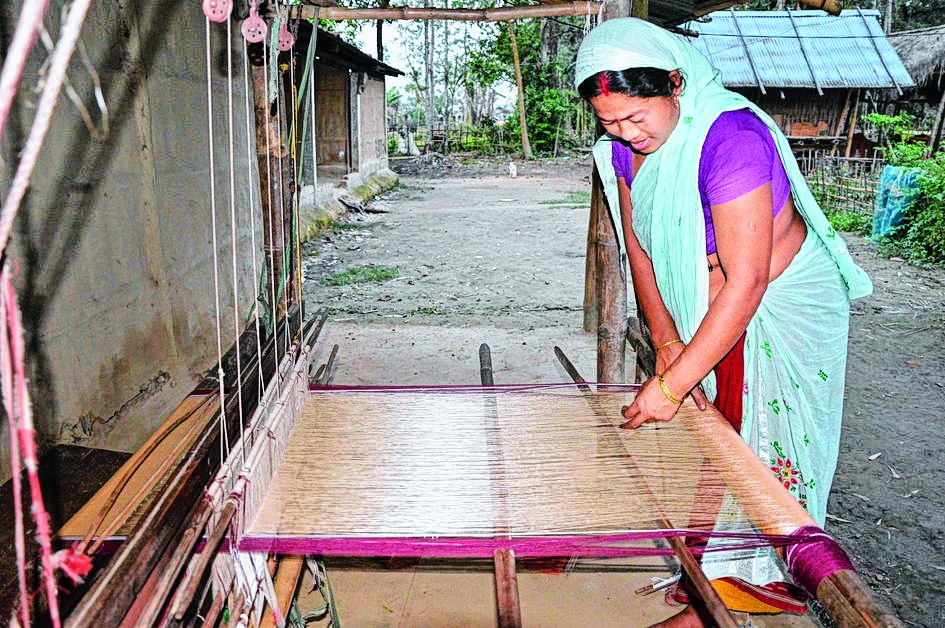
Guwahati, Sept. 14: Assam is witnessing a worrying trend of muga farmers switching to tea cultivation for want of adequate remuneration for their produce, an Assembly committee has observed in its latest report.
The departmentally related standing committee on development (B) departments of the Assembly, headed by BPF legislator Majendra Narzary, also pointed to other factors detrimental to muga farming and suggests measures to improve the lot of the farmers.
The committee observed that riverside muga farms are being adversely affected by pollution caused by burning of waste gases by OIL and ONGC.
It also raised concern over the use of pesticides and insecticides in nearby tea gardens, which harms the rearing of muga silkworms. The panel recommended that the state government, particularly the handloom and textile department, should initiate steps to check use of pesticides/insecticides harmful to muga farming in tea gardens.
Besides, the committee has found that rapid expansion of small tea gardens is shrinking the muga-growing areas in Upper Assam while a growing number of rubber plantations pose a threat to the muga-growing tradition in the lower Assam districts of Goalpara and Kamrup. Dhemaji, Lakhimpur, Sivasagar, Jorhat, Dibrugarh and Golaghat are some of the other major muga-rearing districts in the state.
Encroachment of land belonging to the sericulture department also finds mention in the report. The committee recommended field visits by officials to prepare a detailed report on encroachments and to take steps to evict encroachers from sericulture farms.
The committee recommended product diversification too, keeping in mind the requirements of the global market to increase the demand of muga and eri products and called for evolving a marketing strategy to support muga and eri farmers so that they get proper competitive rates for their produce.
It also suggested measures to control quality and set up separate banks for yarn, silk, cocoon and finished silk products as silk yarn is not readily available to weavers at a reasonable price. "A dedicated bank for finished silk products can be set up at Sualkuchi, which is known as the silk village of Assam, in Kamrup district," the report said.
The committee has suggested that the department should avail of the maximum number of schemes of the Central Silk Board for promotion of sericulture and the local MLA should be involved in selection of the beneficiaries.











